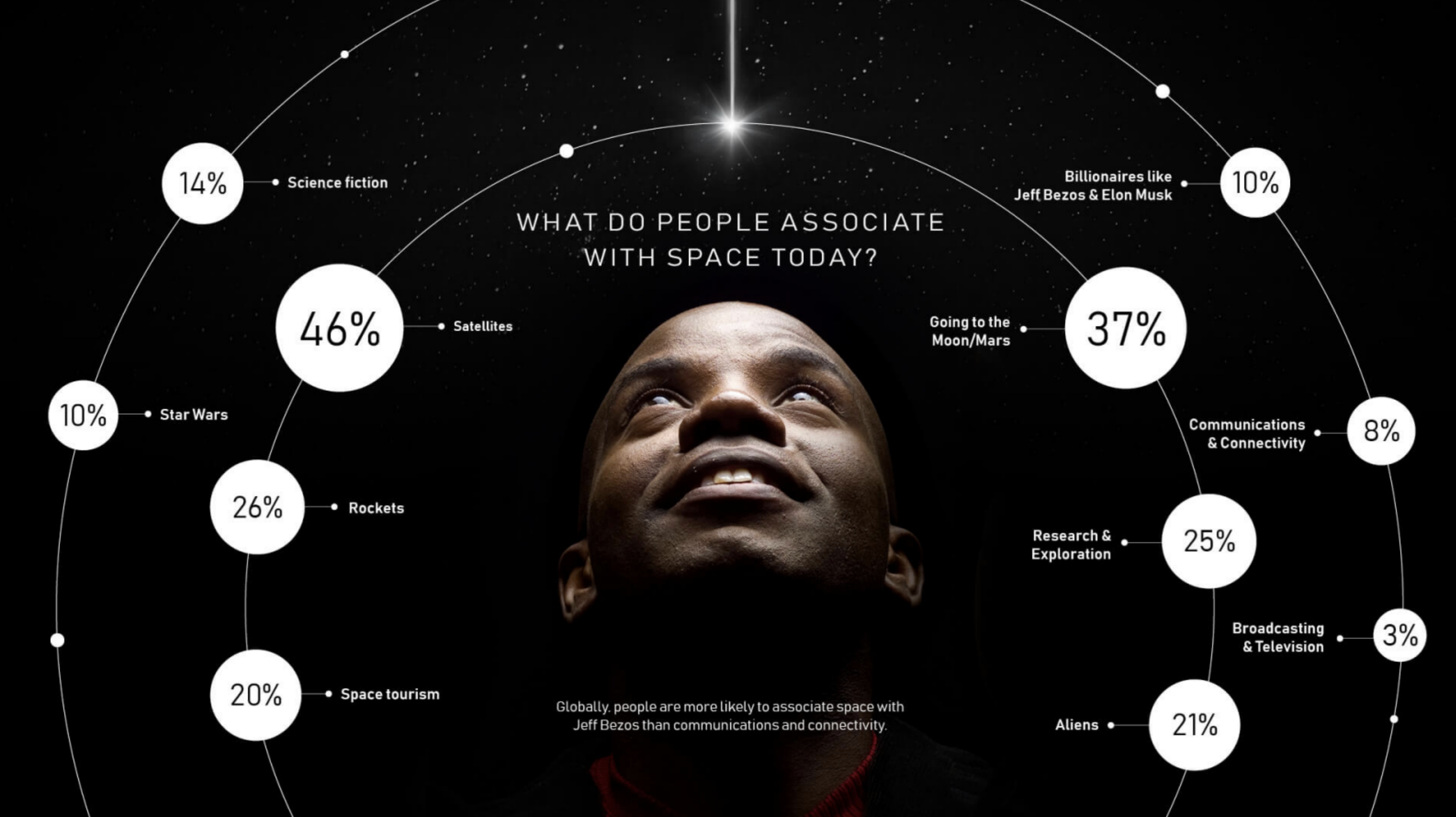Growing support for alternative energy from space, Inmarsat survey reveals
Credit: Inmarsat
Respondents to the ‘What on Earth is the Value of Space?’ survey, the largest of its kind, say they value researching and finding new energy sources above even helping to solve climate change and finding essential resources.
The survey, commissioned by Inmarsat, the world leader in global, mobile satellite communications, spoke to 20,000 people across 11 countries, also finds people’s attitudes varied depending on their country.
Against a global average of 42% hoping to find alternative energy from space, people in South Korea (57%), UAE (48%), and Brazil (47%) are most likely to look upwards for energy innovation.
People from the UK and Canada are less likely to believe space could provide a new source of energy, reaching just 30% and 34% respectively.
The report also reveals that while people are hopeful about sourcing additional energy from space, only a third claim to know about the topic. Globally, people say they have more knowledge of space exploration (50%), satellite communications (46%), weather and climate monitoring (45%) and GPS and satellite navigation or Satnav (43%) than alternative energy sources from space.
The results come against a backdrop of rising global energy prices. In April, the World Bank predicted they could rise by as much as 50.5% this year. Such a significant increase could be leading people to look beyond our world to find new, cheaper energy sources while reducing global reliance on polluting fossil fuels and intermittent renewable energy.
The most advanced form of space-based alternative energy is currently solar power. This works by generating energy from solar panels and beaming power directly to earth wirelessly through focused light or radio waves.
Earlier this year Chinese researchers successfully tested a wireless method of transferring solar power from space using microwave beams. In the US, scientists at the California Institute of Technology are planning to space solar launch test equipment in 2022 or 2023. The European Space Agency is also exploring the possibilities that this new technology offers.
“The results from this survey that Inmarsat commissioned show that people are hopeful about what space can bring, but do not necessarily have a clear understanding of how it can work,” said Peter Hadinger, Chief Technology Officer at Inmarsat. “Finding alternative energy is just one of the ways the space sector can help us build a better world for the future. It is clear we need to engage, educate, and inspire the public to understand the enormous possibilities and benefits the space industry can bring so that they can appreciate it as well as potentially play a role in it.”
To view the full results of the surevy, click here
